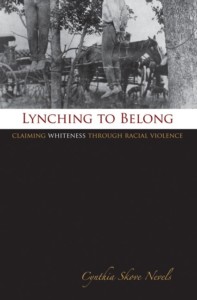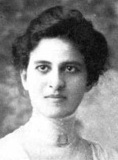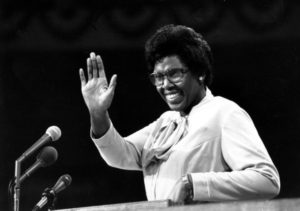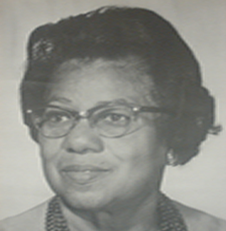Save the date, call for presentations! 2020 Aya Symposium at PVAMU
K-12 Texas educators attending the event will receive 7 CPE credits!
Following on the success of last year’s event, the 2020 Aya Symposium, in association with the Texas Purple Hull Pea Festival, is set for Friday, June 5, at Prairie View A&M University. As last year, the event will be hosted by the Texas Institute for the Preservation of History and Culture located in the School of Architecture.
This year’s theme is: “Making Us Count: Reclaiming the Texas Freedom Colony Legacies of Activism and Engagement in 2020.”
“Being counted” in 2020 – both on the census roles and in the voting booth – is of generational import. This year’s symposium will guide attendees in exploring the role of Texas freedom colonies – throughout history, and into the present – in “Making Us Count” through, protesting, educating, voting, and other methods of community organizing and civic engagement to insure that the voices of Black Texans are heard.
Call for Presentations
We are looking for dynamic and engaging speakers who have the expertise to enlighten and motivate attendees. For submission guidelines, symposium registration, and other information, please click here. Proposals are due Friday, March 27 and selected presenters will be notified no later than Friday, April 17, 2020.
Literature: Daina Ramey Berry on the Courageous and Complex Contributions of Black Women
On the National Podcast of Texas, the coauthor of ‘A Black Women’s History of the United States’ lays out the ways black women transformed America.
 When University of Texas at Austin history professor Daina Ramey Berry and her coauthor, Rutgers University history professor Kali Nicole Gross, started outlining what would become this month’s A Black Women’s History of the United States, they knew they didn’t want to declare it a comprehensive or definitive history. But with a subject they say is grossly underrepresented in both popular and academic history books, they knew they had stories from countless underappreciated and previously unheralded figures in history—enslaved women, freedwomen, religious leaders, artists, queer women, activists—that would help underscore black women’s roles in building American society, culture, and politics.
When University of Texas at Austin history professor Daina Ramey Berry and her coauthor, Rutgers University history professor Kali Nicole Gross, started outlining what would become this month’s A Black Women’s History of the United States, they knew they didn’t want to declare it a comprehensive or definitive history. But with a subject they say is grossly underrepresented in both popular and academic history books, they knew they had stories from countless underappreciated and previously unheralded figures in history—enslaved women, freedwomen, religious leaders, artists, queer women, activists—that would help underscore black women’s roles in building American society, culture, and politics.
“I know it sounds funny, but I kept coming back to Aretha Franklin and her song,” says Berry, who earned her degrees in African American studies and U.S. history at UCLA and is a specialist on the history of gender and slavery in the United States, as well as black women’s history. “We wanted to respect that they were here, meet them where they were, and allow their stories to tell us something about a particular moment in time … They were trailblazers. And when I think about it from the perspective of an African American woman, I have to consider what it would have been like for me as a young little girl to grow up with a book like this available. Because in all the books that I grew up with in my classrooms, there was nobody that looked like me. So I had to imagine myself in places that I didn’t feel were spaces that were open to me.” (more)
Texas A&M Celebrates Black History And Achievement
This Black History Month, learn about the important milestones and achievements of African American students, faculty and staff over the years.
 (Texas A&M Today) 1954-1964: The Road To The Integration Of Texas A&M
(Texas A&M Today) 1954-1964: The Road To The Integration Of Texas A&M
The U.S. Supreme Court ruled unanimously in Brown v. Board of Education of Topeka, Kansas that racial segregation in public schools was in violation of the Constitution. That landmark decision in 1954 began the gradual move toward an integrated Texas A&M University. Two years later, the Texas A&M Student Senate passed a resolution in opposition of segregation, but the student body in a campus-wide election voted to continue segregation.
Texas A&M hired World War II hero and former student Gen. Earl Rudder three years later to serve as president. He would later be credited for providing the leadership necessary to lay the groundwork for integration.
The Texas A&M University System Board of Regents decided in 1962 to “admit qualified students regardless of race” to Arlington State College in 1962 to avoid the threat of a lawsuit.
The passage of the Civil Rights Act in 1964 officially ended segregation in southern higher education. Soon after, five freshmen men became the first black students in the Corps of Cadets.
Click here for more Texas A&M African American firsts.
TIPHC Bookshelf
 Published scholarship on black history in Texas is growing and we’d like to share with you some suggested readings, both current and past, from some of the preeminent history scholars in Texas and beyond. We invite you to take a look at our bookshelf page – including a featured selection – and check back as the list grows. A different selection will be featured each week. We welcome suggestions and reviews. This week, we offer, “Lynching to Belong, Claiming Whiteness through Racial Violence,” by Cynthia Skove Nevels.
Published scholarship on black history in Texas is growing and we’d like to share with you some suggested readings, both current and past, from some of the preeminent history scholars in Texas and beyond. We invite you to take a look at our bookshelf page – including a featured selection – and check back as the list grows. A different selection will be featured each week. We welcome suggestions and reviews. This week, we offer, “Lynching to Belong, Claiming Whiteness through Racial Violence,” by Cynthia Skove Nevels.
Thousands of black men died violently at the hands of mobs in the post–Civil War South. But in Brazos County, Texas, argues Cynthia Nevels, five such deaths in particular point to an emerging social phenomenon of the time: the desire of newly arrived European immigrants to assert their place in society, and the use of racially motivated violence to achieve that end.
Driven by economics and the forces of history, the Italian, Irish, and Czech immigrants to this rich agricultural region were faced with the necessity of figuring out where they fit in a culture that had essentially two categories: white and black. In many ways, the newcomers realized, they belonged in neither position.
In the end, they found ways to resolve the ambiguity by taking advantage of and sometimes participating directly in the South’s most brutal form of racial domination. For each of the immigrant groups caught up in the violence, the deaths of black men helped to establish racial identity and to bestow the all-important privileges of whiteness.
This compelling and superbly written study will appeal to students and scholars of social and racial history, both regional and national.
This Week in Texas Black History
Feb. 17

On this date, Maud Cuney-Hare, daughter of prominent Texas Republican Norris Wright Cuney, was born on this day in Galveston. Cuney-Hare became a musician, author/folklorist, and music historian after studying piano at the New England Conservatory of Music. She taught music at the Texas Deaf, Dumb, and Blind Institute for Colored Youths in 1897 and 1898; at the settlement program of the Institutional Church of Chicago during 1900 and 1901; and at Prairie View State College (now Prairie View A&M University), in 1903 and 1904. Her best known work is the groundbreaking book Negro Musicians and Their Music.
Feb. 18

On this day in 1941 sprinter and football player Homer Jones was born in Pittsburg, Tx. Jones attended Texas Southern University and participated in both track and football. He was a member of the 1962 U.S. Track team and clocked 9.4 seconds in the 100-yard dash, .02 behind the great Bob Hayes. Jones was drafted by the Houston Oilers in 1963 but was cut during training camp because of a knee injury, however, he was picked up by the New York Giants. He had a brief, seven-year career, but in 1967 caught 49 passes for 1,209 yards, averaging 24.7 yards per catch, and 13 touchdowns, leading the NFL in receiving touchdowns. For his career, Jones averaged 22.3 yards per catch, leading all receivers with more than 200 receptions.
Feb. 19

Most Reverend Curtis J. Guillory became the first black Catholic bishop in Texas on this day in 1988. Guillory, a native of Mallet, Louisiana, was installed as auxiliary bishop of the Catholic Diocese of Galveston-Houston. He became the fifth bishop of the 34-year-old Beaumont Diocese on July 28, 2000 and the first African-American to be bishop of Beaumont – or ordinary of any diocese in Texas, for that matter. His father’s side of the family has been traced back to France. His mother’s side of the family has been traced to the Isle Dominica in the West Indies. He is the oldest of 16 children (six sons, ten daughters).
Feb. 21

On this day in 1936, Congressman Barbara Jordan was born in Houston. A graduate of Phillis Wheatley High School, Jordan was elected to the U.S. House of Representatives from the Eighteenth Texas District in 1973, becoming the first Black woman from a Southern state to serve in Congress. Jordan received the Presidential Medal of Freedom in 1994, and held the Lyndon Baines Johnson Public Service Professorship at the LBJ School of Public Affairs, University of Texas at Austin.
Feb. 21

Dolores Burton Linton, educator, was born on this day in 1910 in Seguin. She grew up in Seguin, Hondo, and Moody, where her father taught school. Dolores entered Samuel Huston College in Austin at seventeen but left after a year to become a schoolteacher. She had been teaching in Pleasanton, 35 miles south of San Antonio, when she visited the poor and isolated black community of West San Antonio Heights in 1931. She learned that the closest school for black children was miles away in San Antonio. With no transportation available, the town’s children attended school irregularly. That year, Linton converted a former dance hall to hold classes for black children living near San Antonio but lacking transportation to regularly get to the city to attend school. Linton taught all six grades herself. In 1980, the Northside Independent School District named a new elementary school in her honor.
Blog: Ron Goodwin, Ph.D., author, PVAMU history professor
Ron Goodwin is an assistant professor of history at Prairie View A&M University. Even though he was a military “brat,” he still considers San Antonio home. Like his father and brother, Ron joined the U.S. Air Force and while enlisted received his undergraduate degree from Texas Lutheran University in Seguin, Texas. After his honorable discharge, he completed graduate degrees from Texas Southern University. Goodwin’s book, Blacks in Houston, is a pictorial history of Houston’s black community. His most recent book, Remembering the Days of Sorrow, examines the institution of slavery in Texas from the perspective of the New Deal’s Slave Narratives.
Recent Posts
Worried?
I have a confession. I’m a worrier. But I don’t worry if the Dallas Cowboys or the Houston Texans will make the playoffs, I worry about my family’s health and well being. Right now I’m especially worried about my mother and one of my brothers-in-law. Both are dealing with issues that I pray daily about. And I know I’m not supposed to worry, the Good Book teaches that if the Provider takes care of the…(more)
Football is still football
October 14th, 2019
Since we’re into the football season I thought it was time to interject my two cents. I’ve noticed several teams starting black quarterbacks these days. Some because of injury, but others have been under center since training camp. By my count, the first weekend of the National Football League season in September saw nine African…(more)
Submissions wanted
Historians, scholars, students, lend us your…writings. Help us produce the most comprehensive documentation ever undertaken for the African American experience in Texas. We encourage you to contribute items about people, places, events, issues, politics/legislation, sports, entertainment, religion, etc., as general entries or essays. Our documentation is wide-ranging and diverse, and you may research and write about the subject of your interest or, to start, please consult our list of suggested biographical entries and see submission guidelines. However, all topics must be approved by TIPHC editors before beginning your research/writing.
We welcome your questions or comments. Please contact Michael Hurd, Director of TIPHC, at mdhurd@pvamu.edu.
